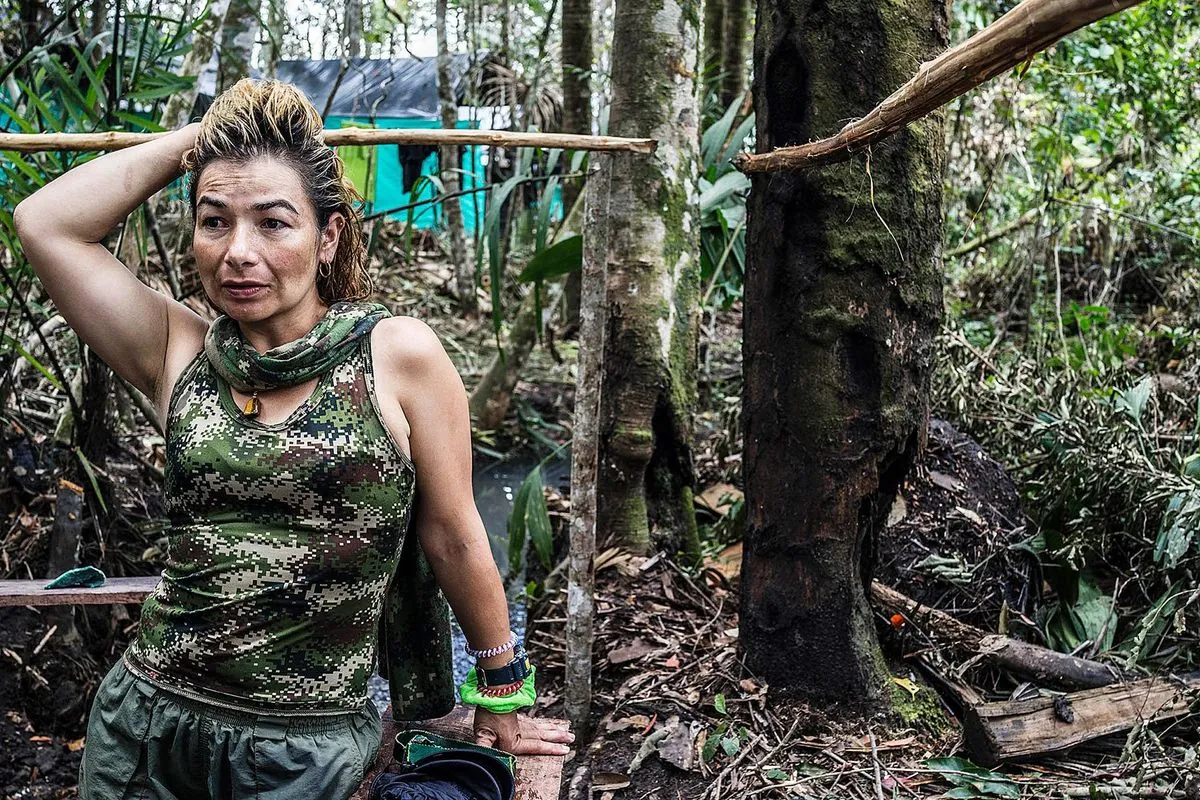In the dense jungles of Colombia's Pacific coast, the Segunda Marquetalia guerrilla group maintains a strong presence, controlling crucial cocaine transport routes. This FARC dissident organization, formed in 2019, continues to challenge the Colombian government's authority in remote areas.
Segunda Marquetalia emerged from the ashes of the 2016 peace deal between the Colombian government and the Revolutionary Armed Forces of Colombia (FARC). The group claims that the government has failed to fulfill its commitments under the agreement, which aimed to end over five decades of armed conflict.
The guerrillas, while adhering to Marxist ideals such as land redistribution, have adapted to modern times. Many fighters, including adolescents, possess cellphones and access satellite internet in their camps. This blend of traditional ideology and modern technology reflects the evolving nature of Colombia's ongoing conflict.
Gustavo Petro, Colombia's first leftist president, has been actively pursuing peace negotiations with various armed groups, including Segunda Marquetalia. However, the group's chief negotiator, Walter Mendoza, has set clear conditions for any potential agreement.
"Right now neither arms nor demobilization are on the table at talks. First things first - transformations of (rural) areas, concrete steps."
Mendoza emphasizes the need for significant social investments in Colombia's neglected regions before considering disarmament. The group demands the construction of roads, schools, clinics, and electricity infrastructure in remote areas as a prerequisite for further negotiations.
The Colombian government, represented by chief negotiator Armando Novoa, maintains that disarmament is a central aspect of the peace process. This fundamental disagreement poses a significant challenge to the ongoing talks.
Segunda Marquetalia's membership comprises a mix of veteran FARC fighters and young recruits, some as young as 16. The group acknowledges taxing narcotics profits in areas under its control but denies direct involvement in drug trafficking. Colombia's position as the world's largest cocaine producer continues to fuel the conflict and complicate peace efforts.
The guerrillas also maintain a presence in neighboring Venezuela, which they describe as a "buffer zone" for political, logistical, and financial operations. This cross-border activity adds another layer of complexity to the peace process.
As President Petro's term approaches its end in 2026, time is running short for a comprehensive peace agreement. The potential election of a right-wing candidate in the next presidential race could further jeopardize the peace process.
Colombia's long history of armed conflict, which has claimed at least 450,000 lives and displaced over 7 million people, underscores the urgency of finding a lasting solution. However, the Segunda Marquetalia's insistence on social investments before disarmament and the government's firm stance on weapon surrender present significant obstacles to achieving peace in the near future.
